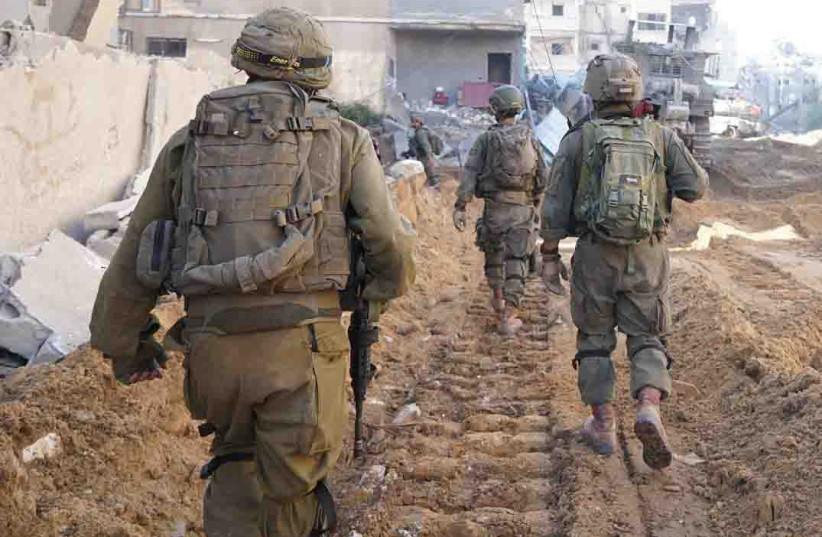The IDF is prepared to carry out a military operation in Gaza’s Rafah during the Ramadan holiday, which begins in March, unless a hostage deal is reached, warned Minister Benny Gantz, as France confirmed that medications designed for the captives had been received.
“If there is no hostage deal, we will operate during Ramadan,” Gantz told reporters on Wednesday night, even as he said that there were early signs that a deal could be in reach after a week of stagnation.
“There are attempts these days to promote a new framework [for a deal] and there are initial signs that indicate the possibility of moving forward,” Gantz said.
As part of that movement forward, the French Foreign Ministry confirmed that medications had finally been received by 45 of the 134 hostages in Gaza.

“We will not stop looking a path forward. We will not miss any opportunity to bring the [hostages] home,” said Gantz, who is a member of the war cabinet.
In the interim, he said, the IDF is preparing for a military operation in Rafah, which will begin after Palestinian civilians are evacuated from the area.
Such an evacuation is necessary so that the IDF can move against the Hamas forces in that area, he said.
He spoke as US Middle East envoy Brett McGurk is in the region to hold talks in Egypt and Israel as part of a push to close a deal that could see a pause in the fighting by the start of the month-long Ramadan holiday.
Hamas said on Tuesday that a delegation headed by its leader Ismail Haniyeh was in Cairo for hostage talks, along with the Deputy Chairman of Hamas in Gaza, Khalil al-Hayya. The Saudi newspaper Asharq Al-Awsat said that an Israeli delegation was also due in Cairo.
Hamas reportedly 'softens stance'
A source told the paper that Hamas had softened its stance.
Last week, Prime Minister Benjamin Netanyahu refused to authorize such a delegation, given how wide the gaps were between the two sides.
Qatar and Egypt are mediating what is a second deal for the return of the remaining 134 hostages. An initial deal in November secured the release of 109 of the 253 captives seized in the Hamas-led massacre attack on October 7.
The Coordinator for the Captives and the Missing, Gal Hirsch, told the Conference of Presidents in Tel Aviv on Wednesday that this situation, one in which Israel was trying to secure the release of so many hostages held in a war zone, was unprecedented.
“Israel has never handled the case with this level of complexity. Neither has any other country,” Hirsch said.
“The negotiations are complex. Hamas is not close yet to the zone of potential agreement, and we hope that they will come back to reality.
“Make no mistakes. We are fully committed to bringing our people back home safe and sound,” he said.
“Since I am there in the war cabinet, I see the decision makers, the ministers, the commanders, the Prime Minister. I can tell you that we want a deal very much. We appreciate the efforts of the mediators. We know that we have to pay a price,” he said, but stressed that the demands must be reasonable,” he said.
“It’s important to believe that in such talks there is an entity that can ensure that the terms of the deal are upheld, he said, as he added that proof the drugs had reached the hostages was one such sign,” he added.
It’s a “good start in understanding that there is someone there on the other side that can deliver,” he said.
In Washington, State Department spokesperson Matthew Miller said the US would want to see a deal reached before Ramadan, or even earlier than that.
“We want to see a hostage agreement that secures a temporary ceasefire, where we can get the hostages out and get humanitarian assistance in,” Miller said.
